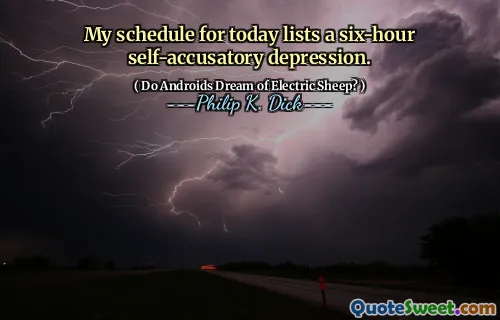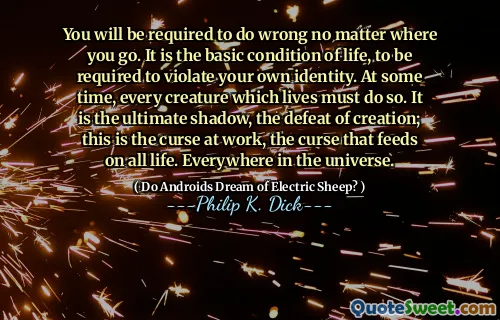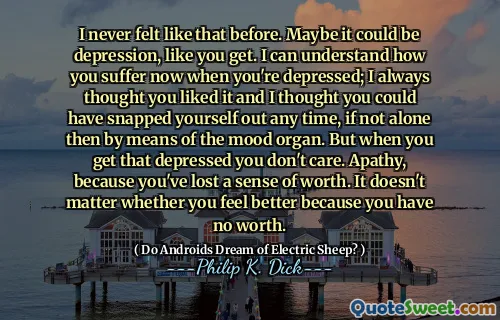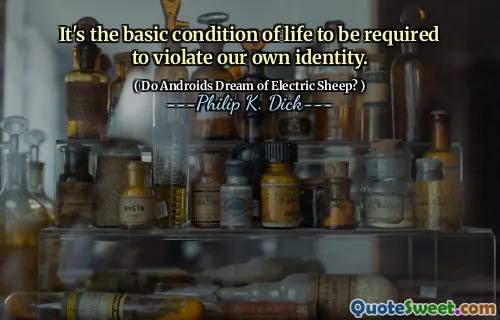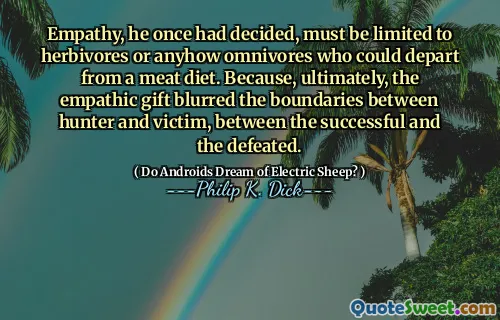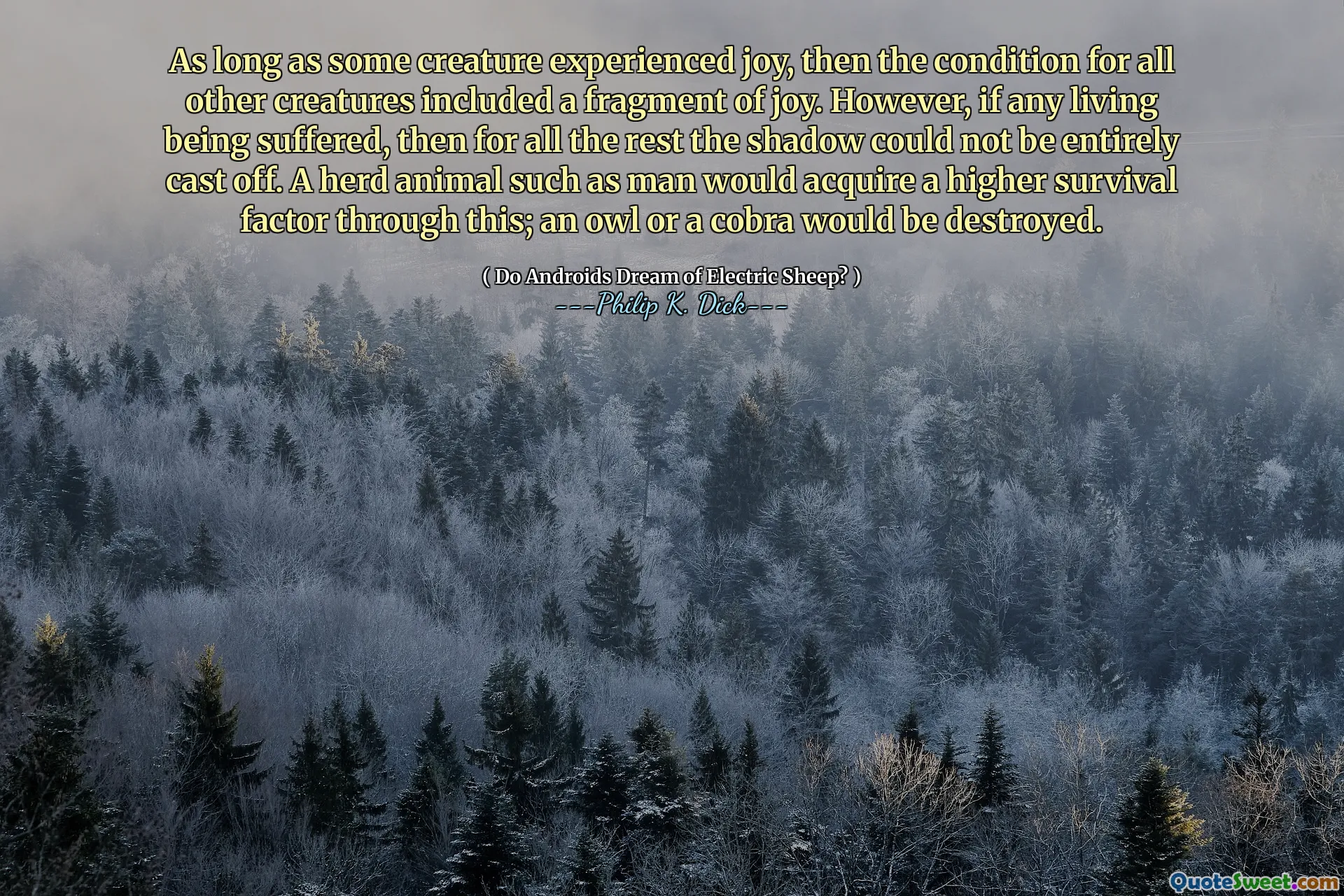
As long as some creature experienced joy, then the condition for all other creatures included a fragment of joy. However, if any living being suffered, then for all the rest the shadow could not be entirely cast off. A herd animal such as man would acquire a higher survival factor through this; an owl or a cobra would be destroyed.
The quote reflects a deep philosophical notion about the interconnectedness of joy and suffering among living beings. It suggests that when even a single creature experiences happiness, it contributes positively to the collective well-being of all. Conversely, the pain experienced by one being casts a shadow over others, implicating a shared emotional landscape. This perspective underscores the idea that joy is a unifying force, while suffering has a more isolating impact. It hints at the collective responsibility to foster joy in the broader community.
This view is particularly pertinent in considering human nature, as the passage indicates that social animals like humans gain survival benefits through mutual support and shared emotions. In contrast, solitary creatures, such as owls or cobras, may not thrive in this interconnected system. Philip K. Dick's exploration of these themes invites readers to reflect on the implications of empathy and communal experience, highlighting the complexities of survival linked to emotional states within a social framework.
